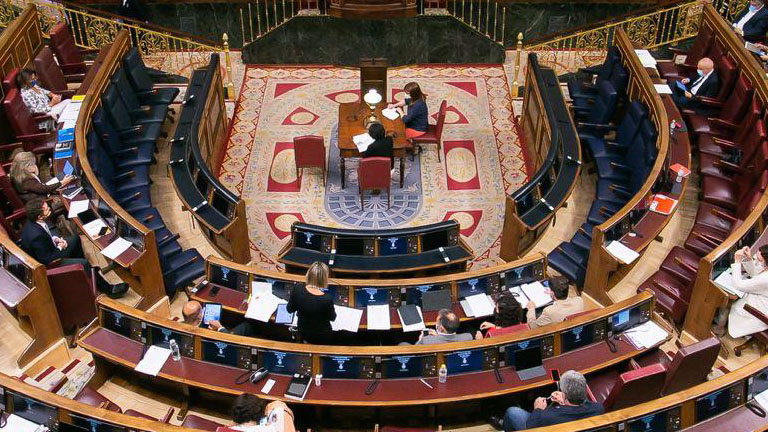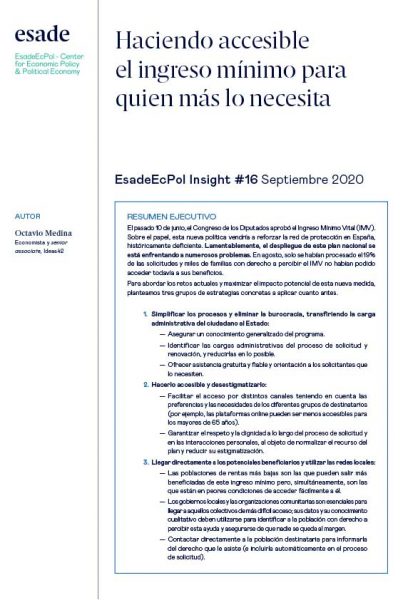
Making the minimum income scheme accessible for those who really need it
Octavio Medina
18 Sep, 2020
EsadeEcPol | Policy Insight
Executive summary
On 10 June, the Spanish Congress passed the national minimum income scheme (MIS). On paper, the new policy scheme reinforces Spain’s historically weak safety net. Unfortunately, the rollout of the national scheme is facing several problems. As of August, only 19% of the applications had been processed, and thousands of eligible families have not yet been able to access the programme.
To address the current challenges and maximise the potential impact of the new scheme, we propose three sets of specific strategies for application as soon as possible.
1. Make it simple and remove bureaucratic hassles by shifting the administrative burden from the citizen to the state:
- Ensure widespread knowledge of the programme.
- Identify administrative burdens in the application and renewal process and reduce them as much as possible.
- Offer free and reliable assistance and guidance to applicants.
Make it accessible and non-stigmatising:
- Provide access channels that address different group preferences and needs (for example, online platforms may be less accessible to the 65+ population).
- Ensure that the application experience and in-person interactions are respectful and dignified to normalise the use of the scheme and reduce stigma.
3. Reach out directly and use local networks:
- The poor have the most to gain from the scheme, but are simultaneously the worst positioned to easily access it.
- Local government and community organisations are essential for contacting the hard to reach; use their data and qualitative knowledge to identify the eligible population and make sure that no one is left out.
- Reach out directly to the target population to inform them of their eligibility (or even enrol them automatically).




